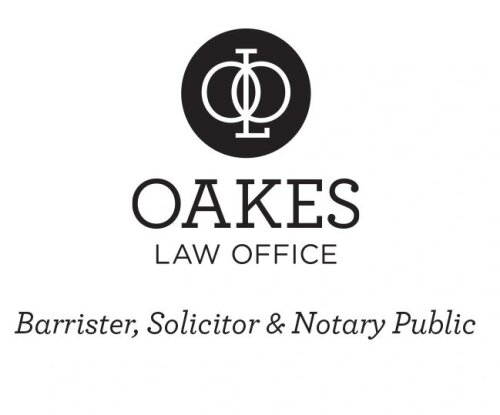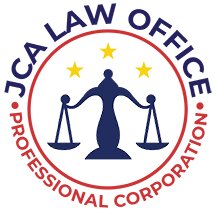Best Elder Abuse Law Lawyers in Toronto
Share your needs with us, get contacted by law firms.
Free. Takes 2 min.
List of the best lawyers in Toronto, Canada
About Elder Abuse Law in Toronto, Canada
Elder abuse law in Toronto, Canada, is designed to protect older adults from various forms of abuse, including physical, emotional, financial, and neglect. This area of law recognizes the vulnerability of elderly individuals and provides mechanisms for their protection and support. Elder abuse can manifest in many ways and may occur in various settings, such as the victim's home, a nursing home, or a public space. Legal frameworks in Toronto, and across Canada, aim to safeguard the rights and well-being of the elderly through comprehensive legislation and supportive resources.
Why You May Need a Lawyer
There are several situations where you might require legal assistance regarding elder abuse law:
- You suspect an elderly family member is being abused or exploited and want to take legal action.
- An elder individual has been wrongfully deprived of property, income, or other resources by a caregiver or relative.
- You are seeking to set up legal guardianship or power of attorney to protect an elder's interests.
- There is a need to report suspected elder abuse to authorities and navigate the subsequent legal processes.
- You require assistance in understanding the legal rights of an elderly individual in care facilities or other institutions.
Local Laws Overview
In Toronto, elder abuse is addressed through various laws and legal provisions, including:
- Criminal Code of Canada: Addresses criminal acts like assault, theft, fraud, and neglect, providing a framework for prosecution.
- Ontario's Long-Term Care Homes Act, 2007: Provides regulations for the treatment and care of residents in long-term care facilities, ensuring their rights are protected.
- Health Care Consent Act, 1996: Ensures consent is obtained before medical treatment and protects the decision-making autonomy of those able.
- Substitute Decisions Act, 1992: Governs matters involving guardianship and powers of attorney, giving guidance on how these roles are appointed and managed.
- Adult Protection Services: Offers an avenue for reporting and addressing instances of elder abuse and provides protective services for vulnerable adults.
Frequently Asked Questions
What constitutes elder abuse?
Elder abuse can include physical harm, emotional abuse, financial exploitation, neglect, or any action that causes harm or distress to an elderly person.
How can elder abuse be reported?
Elder abuse can be reported to local authorities such as the police, the Ministry of Seniors and Accessibility, or through dedicated elder abuse hotlines and services.
What legal protections are available for seniors?
Seniors are protected under various federal and provincial laws that criminalize abuse and provide for intervention and support services.
Can I file a lawsuit for elder abuse?
Yes, if there is evidence of abuse, it is possible to file a civil lawsuit seeking damages or legal remedies on behalf of the victim.
Who can be held liable for elder abuse?
Liability can extend to family members, caregivers, facility staff, or professionals entrusted with an elder's care.
What is the role of a Power of Attorney?
A Power of Attorney is a legal document granting someone the ability to make decisions on another's behalf, particularly relating to financial and personal matters.
How is financial abuse of an elderly person identified?
Financial abuse may be indicated by unexplained bank account withdrawals, sudden changes in financial standing, or changes to legal documents such as wills.
What steps should be taken if an elder is in immediate danger?
In cases of immediate danger, contact emergency services (911) and ensure the elder's safety while waiting for assistance.
Are there legal avenues for recovering stolen assets?
Yes, legal actions can be taken to recover assets, which may involve civil litigation or criminal prosecution.
What is a guardian's responsibility in elder care?
A guardian is responsible for making legal decisions regarding an elder's personal care and well-being, ensuring their needs and interests are prioritized.
Additional Resources
Here are some resources that can assist those seeking legal advice on elder abuse in Toronto:
- The Advocacy Centre for the Elderly (ACE): Offers legal services and advocacy for seniors in Ontario.
- Ontario Network for the Prevention of Elder Abuse (ONPEA): Provides resources and information on preventing elder abuse.
- Ministry of Seniors and Accessibility: Offers programs and policies related to senior citizens in Ontario.
- Legal Aid Ontario: Provides legal support and services for eligible individuals under financial constraints.
- Seniors Safety Line: A 24/7 toll-free confidential resource providing support and referrals for seniors experiencing abuse.
Next Steps
If you suspect elder abuse and need legal assistance, here are the steps you can take:
- Contact the police or local authorities if there is an immediate threat to the elder's safety.
- Consult a lawyer specializing in elder abuse law to understand the legal options available.
- Document any signs of abuse or exploitation, including photographs, financial records, or testimonies.
- Reach out to local support services like the Advocacy Centre for the Elderly (ACE) for guidance.
- Consider applying for legal aid if financial constraints are an issue in accessing legal services.
Lawzana helps you find the best lawyers and law firms in Toronto through a curated and pre-screened list of qualified legal professionals. Our platform offers rankings and detailed profiles of attorneys and law firms, allowing you to compare based on practice areas, including Elder Abuse Law, experience, and client feedback.
Each profile includes a description of the firm's areas of practice, client reviews, team members and partners, year of establishment, spoken languages, office locations, contact information, social media presence, and any published articles or resources. Most firms on our platform speak English and are experienced in both local and international legal matters.
Get a quote from top-rated law firms in Toronto, Canada — quickly, securely, and without unnecessary hassle.
Disclaimer:
The information provided on this page is for general informational purposes only and does not constitute legal advice. While we strive to ensure the accuracy and relevance of the content, legal information may change over time, and interpretations of the law can vary. You should always consult with a qualified legal professional for advice specific to your situation.
We disclaim all liability for actions taken or not taken based on the content of this page. If you believe any information is incorrect or outdated, please contact us, and we will review and update it where appropriate.














